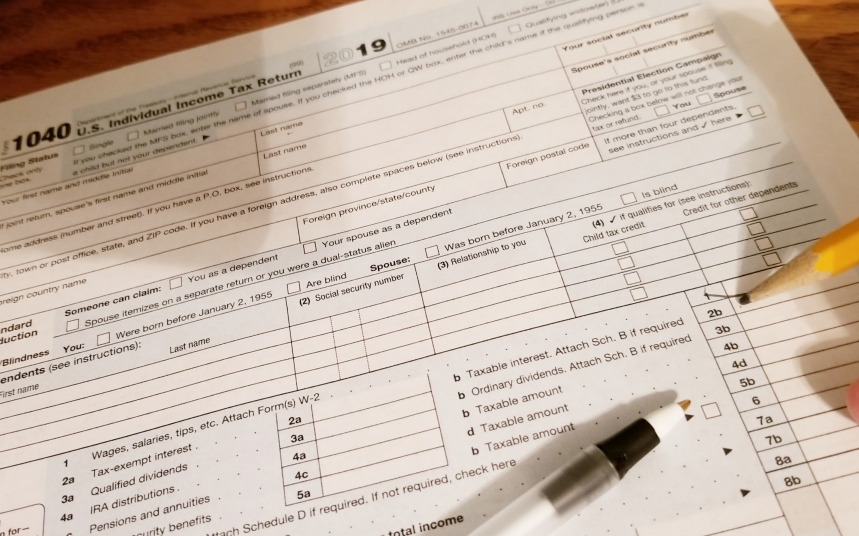3 Tax Issues to Consider in Estate Planning – Income Taxes
Related Articles:
- Summary: 3 Tax Issues to Consider in Estate Planning
- 3 Tax Issues to Consider in Estate Planning – Estate Taxes
- 3 Tax Issues to Consider in Estate Planning – Property Taxes
We previously wrote about how estate planning decisions are significantly affected by at least three different taxes – income, property and estate taxes. Here, we will dive deeper into how income tax consequences can affect the choices you make in your estate plan.
First, we’ll start with simplified definitions of the following terms:
- Your cost basis for an asset is usually the price you pay when you bought the asset plus any money you put into improving that asset or less any depreciation.
- Capital gain is equal to the difference between the amount you receive when you sell an asset and your cost basis. Generally speaking, capital gains are realized, and tax liability incurred, when the asset is sold.
These terms can be understood in context with the following example – John buys a property for $1,000,000. John’s cost basis is $1,000,000. He later sells the property for $1,500,000. John realizes capital gains of $500,000.
Capital gains are a major consideration when making estate planning decisions. It will affect when you transfer assets (during your lifetime or at your death), how you take title to property, and who you name as beneficiaries.
 When Should I Give Away Assets? Capital gains liability will dramatically change depending on when your assets are transferred. If you give away assets during your lifetime, then the donee receives your current cost basis i.e. carryover basis. By contrast, if you wait until you pass away to transfer the asset to your beneficiary, then the beneficiary’s basis is equal to the fair market value of the asset at the time of your death i.e. a stepped up basis.
When Should I Give Away Assets? Capital gains liability will dramatically change depending on when your assets are transferred. If you give away assets during your lifetime, then the donee receives your current cost basis i.e. carryover basis. By contrast, if you wait until you pass away to transfer the asset to your beneficiary, then the beneficiary’s basis is equal to the fair market value of the asset at the time of your death i.e. a stepped up basis.
For example, Mom and Dad own a home they purchased for $100,000. Fifty years later, Mom and Dad gifted the home to Son in order to avoid probate upon their death. Mom and Dad both pass away sometime thereafter. Son sells the home for $2,000,000. Since Mom and Dad gifted the home to Son while he was alive, his cost basis was carried over from Mom and Dad and is $100,000. He realizes capital gains of $1,900,000, i.e., $2,000,000 – $100,000.
If Mom and Dad instead waited for Son to inherit the property after they die, Son’s basis would have been stepped up to the fair market value at the time of the survivor’s death. Let’s say Mom passed away after Dad and at the time of her death, the home was valued at $2,500,000. Mom gives her home to Son at the time of her death through her Trust. Since the fair market value at the date of Mom’s death was $2,500,000, Son’s basis is $2,500,000. Son then decides to sell the home for $2,500,000. He has $0 of capital gains, i.e., $2,500,000 – $2,500,000.
Several other taxes are involved when transferring property (e.g., property taxes and gift taxes), but estate planning decisions about when to transfer an asset should take income tax consequences into consideration.
How Should I Take Title to My Property? Husband and Wife just purchased a home. Real estate agent asks – how do you want to title your new property? Husband and Wife, as joint tenants? Husband and Wife, as community property with rights of survivorship?
California is one of nine community property states where step-up in basis has a particular advantage. In community property states, the surviving spouse gets a full step-up in basis on the entire asset upon the death of the first spouse.
For example, Husband and Wife acquired a home as Husband and Wife, as joint tenants (instead of community property), for $1,000,000. Husband’s basis is $500,000 and Wife’s basis is $500,000. Husband passes away years later when the home is valued at $3,000,000. Husband’s share of the jointly owned home is stepped up to the fair market value at the time of his death, i.e., $1,500,000. The basis for Wife’s share of the home is still $500,000. Wife’s basis in the entire home is $2,000,000 and if she sold it shortly after Husband dies for $3,000,000, she realizes $1,000,000 of capital gains, i.e., $3,000,000 – $2,000,000.
By contrast, Husband and Wife are advised to take title as Husband and Wife, as community property, through their Trust. In the example above, when Husband passes away, the home gets a full step up in basis to the fair market value at the time of his death, i.e., $3,000,000. Wife sells it shortly thereafter for $3,000,000 and realizes $0 of capital gains, i.e., $3,000,000 – $3,000,000.
Furthermore, when Wife passes away, the entire home gets a second step-up in basis, i.e., a double step up. When the children sell the home shortly after Wife passes, they also have little to no capital gains.
Estate planning often involves characterizing assets as community or separate property as well as titling assets. Understanding the income tax consequences will greatly affect how you choose to take title or change title when doing estate planning.
Who Should I Name as Beneficiaries of my 401k or IRA? Estate planning also involves the disposition of payable on death assets like retirement accounts and life insurance policies. For retirement accounts, taxes are paid when the money from the account is distributed to the beneficiary. Beneficiaries of retirement accounts are taxed differently on the distributions from those accounts. Naming a beneficiary who can take distributions over the longest period of time, or a beneficiary who can deduct income from the taxable distributions, can affect who you choose as beneficiaries of such accounts.
For example, Employee is working on his estate plan and has decided on a number of beneficiaries including his spouse, friends, and charities. Employee’s assets include a primary residence, retirement accounts, and non-retirement accounts. If Employee wants to minimize tax liability on distributions from his retirement account, he may choose to name charities as beneficiaries of his 401k and leave his home and non-retirement accounts to his spouse and friends. As a result, distributions from the 401k to the charity that would have been otherwise taxable to an individual, will be deducted and no income taxes will be paid. Employee’s spouse and friends will get a step up in basis for the home and non-retirement accounts. Upon the sale of those assets, the spouse and friends will only realize capital gains on the increased value of the assets since Employee’s death.
Perhaps instead, Employee is in a second marriage. He has 3 children from his first marriage. Employee has $1 million in his IRA and $1 million in other non-retirement assets. If Employee is concerned about paying the least amount of taxes on distributions from his IRA, he may choose to name his spouse as the beneficiary since his spouse can take distributions from IRAs over the spouse’s lifetime. By contrast, if Employee named his children as beneficiaries of the IRA, the children would have to distribute the IRA by the 10th year after Employee’s death.
Conclusion
There are many income tax considerations when making estate planning decisions. By working with Modern Wealth Law, we will help you navigate the tax consequences to make the most tax efficient decisions for your estate plan.
Related Articles:
- Summary: 3 Tax Issues to Consider in Estate Planning
- 3 Tax Issues to Consider in Estate Planning – Estate Taxes
- 3 Tax Issues to Consider in Estate Planning – Property Taxes

Tiffany K. Chiu is a Partner at Modern Wealth Law, APLC. Tiffany is a skilled bilingual (Mandarin and English) estate planning attorney who caters to the needs of individuals, families, and small business owners in Orange County. She has extensive experience in drafting documents related to formation, financing, reorganization, conversion, and dissolution of joint ventures, partnerships, limited liability companies, and corporations.



